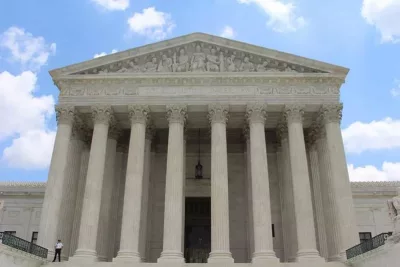
- Originally Published on October 19, 2021
Your Comprehensive Guide to New York Defamation Law
New York is home to countless media organizations, high-profile public figures, and individuals from diverse backgrounds. It should therefore be no surprise that New York defamation law has an abundance of legal precedent pertaining to defamation and is generally seen as a very favorable jurisdiction for defamation defendants who are public and private individuals. Given the state’s robust legal precedents, whether you are pursuing a defamation lawsuit or defending one, to improve your chances of success it is critical to understand the nuances of New York’s statutes and case law that pertain to defamation claims.
In New York, defamation is defined as a false statement published to third parties that exposes a person or entity to hatred, contempt, aversion, or to induce an unsavory opinion in the minds of members of the community. The heart of a valid claim for defamation in New York hinges on whether or not the statement caused damage to the subject’s reputation.
At Minc Law, we have litigated in 26 states and 5 countries, including New York. We have authored 22+ state-specific defamation law guides to help victims of defamation understand their rights, no matter where they are located.
In this guide to New York defamation law, we explain:
- How to prove defamation in a New York court,
- Types of defamation recognized in New York state,
- New York’s defamation statute of limitations,
- Most common defenses to defamation in New York, and Finally,
- Types of damages available in New York and how to prove them.
Let us help. Contact us for a free consultation with an intake specialist to help you explore your removal options and craft an effective strategy.Are you the target of defamation?
Standards For New York Defamation Laws
Defamation is the legal term for a false statement made to others, with at least a negligent level of intent, that damages one’s reputation.
There are two categories of defamation: libel and slander. The main difference between the two is that slander is verbal defamation and libel is written. Libel occurs when someone publishes a false statement about you in a tangible medium, such as a news article or social media post. Slander, on the other hand, occurs when someone verbally communicates a false statement.
What Counts as a Defamatory Statement in New York?
New York courts define defamation as “a statement which tends to expose a person to hatred, contempt, or aversion or to induce an evil or unsavory opinion in the minds of a substantial number of people in the community.”
The Mencher court emphasized that the crux of a valid defamation claim is whether or not damage to one’s reputation exists.
How Can You Prove Defamation in New York?
To prove that you have been defamed, New York law requires that you show:
- The defendant made a false statement,
- Published to a third party without authorization,
- The defendant was at least negligent when making the statement, and
- The statement caused special harm or constituted “defamation per se.”
The above elements and analysis of a New York defamation claim are laid out in Dillon v City of New York, 261 AD2d 34, 38, 704 NYS2d 1 (1999).
What Constitutes Defamation Per Se in New York?
Defamation per se recognizes that some statements are so inherently damaging that reputational harm will be presumed. New York courts recognize four types of statements as defamation per se, including:
- Statements charging a plaintiff with a serious crime,
- Statements that tend to injure another in their trade, business, or profession,
- Statements imputing a loathsome disease on a plaintiff, and
- Statements imputing unchastity on a woman.
What Are Some Examples of Defamation Per Se in New York?
Defamation Per Se Found in Matter of Cohen
In 2009, the New York Supreme Court was asked to weigh in on an issue of online defamation per se. An anonymous blogger operated five different blogs titled, “Skanks of NYC.” On the site, the blogger posted photos, captions, and commentary about one woman, Liskula Cohen.
The victim filed a John Doe lawsuit to uncover the identity of the anonymous defamer, claiming that the blogs and their content constituted defamation per se.
Citing the defamer’s use of terms like “skank,” “ho,” and “whoring,” the Court said the words were used to describe Cohen as sexually promiscuous – and falsely implying “that a person is promiscuous is defamatory.” Ultimately, the Court issued an order directing Google to reveal the identity of the anonymous defendant so the victim could recover damages for the harm to her reputation.
Defamation Per Se Expanded on in Four Star Stage Lighting v. Merrick
In Four Star Stage Lighting v. Merrick, the Court expanded on the types of defamatory statements that might injure another in their business or profession. In New York, statements imputing “any kind of fraud, dishonesty, misconduct, incapacity, unfitness, or want of any necessary qualifications” can be presumed to injure another’s professional reputation.
What Are the Different Types of Defamation in New York?
New York recognizes different types of defamation including group defamation, injurious falsehood, trade libel, and slander of title.
Group Defamation in New York
In 1952, the U.S. District Court for the Southern District of New York found that false statements made about members of a group may give rise to a group defamation claim. Neiman Marcus v. Lait established that libelous statements alleging that “most members” in a group that included 25 people were guilty can lead to an actionable claim of “group defamation.”
This case enabled plaintiffs to sue for defamation if the statement was published in such a way that allows for easy identification of the individuals within the group. If a reader can reasonably understand that a statement about a group of people includes the plaintiff (because the group is sufficiently small enough), a plaintiff may make a claim of group defamation.
Injurious Falsehood in New York
Injurious falsehood is a cause of action for business defamation when the statement denigrates “the quality of the business’s goods or services.”
However, if the defamation only pertains to the business’s goods or services, the plaintiff must prove the statement was made with malice and that there were special damages.
“The distinction between defamation and product disparagement was succinctly stated in Ruder & Finn, Inc. v. Seaboard Surety Co., 52 N.Y.2d 663, 670, 422 N.E.2d 518, 670, 7 Media L. Rep. 1833 (1981): “Where a statement impugns the basic integrity or creditworthiness of a business, an action for defamation lies and injury is conclusively presumed. Where, however, the statement is confined to denigrating the quality of the business’ goods or services, it could support an action for disparagement, but will do so only if malice and special damages are proven.
Trade Libel in New York
Trade libel is considered a form of injurious falsehood in New York. In fact, the terms are often used interchangeably.
More specifically, trade libel refers to the publication of false statements that are derogatory to the plaintiff’s business. The false statements must be made in a way designed to prevent others from dealing with the business or “otherwise interfering with the business’s relations with others.”
Slander of Title in New York
If the publication of false, malicious statements disparages the title or property interests of another, causing special damages, it is referred to as slander of title.
If the false publication impairs one’s ability to sell the property in question, that is sufficient to establish special damages. In one case from 1978, Merrimaker Corp. v. Schwartz, the court found that the wrongful filing of a lis pendens (a written notice declaring a lawsuit has been filed over the title of real estate) was grounds for slander of title.
Criminal Defamation: Is Defamation a Crime in New York?
New York does not have criminal defamation laws on the books. This means that defamation lawsuits will always take the form of civil litigation. Defamers will not face criminal penalties like imprisonment.
Statute of Limitations For Defamation Claims in New York
What is a Statute of Limitations?
A statute of limitations (SOL) is a time-limiting mechanism and deadline on one’s ability to file a lawsuit. In virtually all legal matters, the statute of limitations dictates how long you have to file a lawsuit after an unlawful incident occurs.
Video: What is the Statute of Limitations in the U.S.? A Legal Overview

All statutes of limitation differ based on the jurisdiction where you file your lawsuit, the type of claim at issue, and whether any exceptions apply.
Why is There a Statute of Limitations on Defamation Claims in New York?
While statutes of limitations may seem like an extra step complicating an already difficult legal matter, they exist for good reason.
Firstly, evidence tends to deteriorate over time – it can be lost, destroyed, or otherwise hard to find when a lawsuit is filed long after the incident occurs.
Also, SOLs encourage plaintiffs to pursue their claims diligently, allowing defendants the opportunity to prepare a defense.
How Much Time Do You Have to Sue For Defamation in New York?
Victims of defamation in New York have one year (from the date the defamatory content was communicated or published) to file a lawsuit. New York’s one-year statute of limitations applies to both slander and libel claims.
Injurious Falsehood Statute of Limitations
In New York, if a victim sues over injurious falsehood (business defamation), they have three years to file a lawsuit.
However, New York courts will not allow plaintiffs to “circumvent the one-year [defamation] statute by improperly categorizing a claim as injurious falsehood when it actually seeks redress for injury to reputation.”
Does New York Follow the Single Publication Rule?
Yes. New York follows the single publication rule but with several exceptions. The single publication rule impacts when the statute of limitations period starts running. Under this rule, the SOL begins to run the first time a defamatory statement is published or communicated. If a defamatory statement is shared more than once, the SOL starts running the first time it was communicated.
For example, if Bob published a defamatory statement on Twitter in August 2021, then published the same statement on Facebook and Reddit in December 2021, you must file a defamation case by August 2022 to meet New York’s statute of limitations. If you wait until December 2022 to file, you will have exceeded the deadline for filing a defamation claim.
However, New York courts have found several exceptions to the single publication rule. In Rivera v. NYP Holdings, the court held that the publication of a defamatory statement in a newspaper’s print edition and then again on its website were an exception to the single publication rule because “online publications and print publications are designed to reach different audiences.”
Likewise, relocating defamatory material originally posted on one website to a second website constitutes a republication and will restart the statute of limitations.
On the other hand, merely accessing an article on the internet after its original publication will not restart the statute of limitations.

Common Defenses to Defamation Lawsuits in New York
Before filing a defamation lawsuit, it is worth understanding the most common defenses to defamation claims. By familiarizing yourself with potential defenses, you can strengthen your claims and increase your chances of success.
The most common defenses to defamation in New York are:
Truth as a Defense to Defamation
If the statement in question is objectively true, then the defense of truth will act as an absolute defense to defamation.
Additionally, even if the statement contains minor inaccuracies (but the gist of the statement is true), then the substantial truth doctrine may apply.
Opinion Defense to Defamation
When the statement can be neither proven nor disproven as objectively true or false, then a defendant may rely on the opinion defense.
Privilege: A Defendant’s Right to Do or Say Something
The defense of privilege refers to a defendant’s legal right to do or say something at a certain time and before a certain audience (often with a reciprocal interest in hearing the statement). Privilege is typically broken into five types:
- Absolute,
- Qualified,
- Fair Report,
- Statutory, and
- Neutral Report.
We explain the fundamental differences between absolute and qualified privilege below.
Consent as a Defense
Where the plaintiff consented to publication of the statement, then a defamation claim may fail.
Statute of Limitations
If a defamation lawsuit was not filed within the appropriate defamation statute of limitations by the plaintiff, then the suit may be dismissed or penalized.
Statutory Defenses to Defamation Claims
Defenses available by law, like Anti-SLAPP statutes, may preclude a defamation claim. For example, New York’s Anti-SLAPP statute protects defendants from frivolous lawsuits filed in retaliation of criticism and/or opposition of a corporation, individual, or matter of public interest.
What is the Difference Between Public & Private Defamation?
Proving a defamation claim differs substantially based on whether the plaintiff is a public or private figure. In New York Times Co. v. Sullivan, the Supreme Court created two distinct burdens of proof that public and private figures must prove in order to succeed in their defamation claim.
Private individuals must only prove the defendant acted with negligence when publishing or communicating an alleged defamatory statement. For purposes of defamation, negligence can be established by showing the defamer did not act with prudence or as a reasonable person in a similar situation would when publishing the alleged defamatory statement(s).
Public figures, on the other hand, must jump through an additional hurdle to succeed on a defamation claim. Public figures must show the defamer published the statement with actual malice or reckless disregard to win their case.
In general, public figures are those who have some degree of notoriety or prominence in society, including:
- Politicians,
- Celebrities,
- Athletes, and
- Other notable individuals.
Public vs. Private Persons in New York
The New York Times v. Sullivan court held that public figures must prove that a defamatory statement was made with actual malice, by clear and convincing evidence. To determine whether a particular plaintiff qualifies as a public figure, the court must consider whether the plaintiff “thrust himself into the middle of a public issue or controversy, or has taken affirmative steps to attract public attention.”
In Rosenblatt v. Baer, 383 U.S. 75 (1966), the court provided examples of individuals who may be considered public figures, including, “judges, police officers, state troopers, corrections officers, high school principals, and an assistant district attorney.” A plaintiff who maintains “regular and continuing access to the media” may also be considered a limited-purpose public figure.
For a public figure to prove a defendant acted with actual malice, “courts must look to whether the publisher…believed the statement was false, or whether he published…it with reckless disregard for the truth – or a high probability that the statement was false.”
What Are Issues of Public & Private Concern?
Another issue New York courts take into consideration is whether the defamation regards an issue of public concern. Even private individuals may be involved in matters of legitimate public concern.
New York defamation law defines issues of public concern as “relating to any matter of political, social, or other concern of the community,” and requires a showing of actual malice by the plaintiff.
In New York, the Court of Appeals has not explicitly addressed the standard to be applied in situations involving private individuals not involved in matters of public concern. However, lower courts have held that a negligence standard of liability should be applied.
Defamation Jurisdiction Tip: You may have options when it comes to where you must file your defamation lawsuit. Usually, you can choose to file your lawsuit in the jurisdiction where (1) you live, (2) the defendant lives, (3) your business operates, (4) your customers live, or (5) where you have experienced losses and damages as a result of the defamation.
What Are the Differences Between Absolute & Qualified Privilege?
The defense of privilege is quite common. This defense often takes one of two forms:
- Absolute privilege, and
- Qualified privilege.
When Does Absolute Privilege Apply in New York?
Absolute privilege refers to an individual’s unqualified legal right to communicate or publish a statement at a certain time and to a particular audience. Absolute privilege even extends to individuals who communicate or publish statements with actual malice.
In New York, absolute privilege primarily applies in three primary types of situations:
- Statements made in legislative proceedings,
- Statements made by participants in judicial proceedings, and
- Statements made by executive officers of the state and public officials of government in the course of their responsibilities.
Qualified Privilege in New York Explained
Qualified privilege, sometimes referred to as ‘common interest privilege’, typically only applies in situations where the publisher has a moral, legal, or ethical duty to communicate a statement and the audience has a reciprocal interest in hearing that statement. Qualified privilege does not protect individuals who communicate or publish statements with actual malice.
In New York, qualified privilege applies to “statements made in good faith to a third-party with a corresponding interest or duty in the matter being communicated.”
By way of example, a court considered a baseball umpire’s statements regarding a little league coach’s “unacceptable and despicable language and behavior” was subject to qualified privilege because the umpire “made the statement to a group with whom he had a corresponding interest.”
Damages Awarded For Defamation in New York
Unless a statement qualifies as “defamation per se,” a plaintiff must prove damages to succeed on a defamation claim.
How Are Damages For Defamation Assessed in New York?
Damages are a legal umbrella term, covering different types of harm. New York looks for four different types of damages in defamation cases:
- Special damages,
- Presumed damages,
- Actual damages, and
- Punitive damages.
New York is one just several states which does not have a cap as to the potential recoverable damages amount in personal injury cases.
Special Damages in New York
Special damages are typically associated with defamation per quod because they cannot be presumed based on the language of the defamatory statement alone. A plaintiff may need to prove special damages if they have to rely on any extrinsic evidence to show how the statement was defamatory.
To prove special damages, for example, a plaintiff might show “estimates of the number of lost customers and attempted itemization of investment costs.”
Presumed Damages in New York
In New York, damages will be presumed in a libel action if the statement(s) in question are considered ‘libelous per se’.
However, the Court of Appeals has emphasized that to prove libel per se, a “…plaintiff must show that the alleged defamatory statement tends to expose the plaintiff to public contempt, ridicule, aversion or disgrace, or induce an evil opinion of him in the minds of right-thinking persons, and to deprive him of their friendly intercourse in society.”
Actual Damages in New York
When a plaintiff is unable to show a defamer acted with actual malice when making a defamatory statement, they must prove actual damages.
Actual damages include harm like lost income, lost business, and expenses incurred while dealing with defamation. A plaintiff can often prove actual damages with bank statements, tax returns, and invoices that prove the amount of expenses incurred.
Punitive Damages in New York
Punitive damages go above and beyond most other forms of reputational harm, so plaintiffs must show the defendant was especially malicious in their actions. In New York, a victim of defamation must show actual malice as well as common law malice (like spite or ill-will) to recover punitive damages.
In Stern v. Cosby, evidence that the defendant said she was going to “nail the [plaintiff] to the wall” and “destroy him” sufficiently raised the issue that the defendant “acted with hatred, ill-will, or spite.”
What Factors Affect the Amount of Compensatory Damages For Defamation in New York?
To recover damages in compensation for the harm caused by defamation, a plaintiff must show that the damages are “the direct and well-connected result” of the defamatory statement.
For a more thorough guide on proving damages, check out our article, “How to Prove Damages in a Defamation Lawsuit.”
What is the Typical Award For Defamation Damages in New York?
Damages always differ based on the facts of one’s case. Not only will courts consider the egregiousness of the defamation, but they will also look at how much evidence a plaintiff presents to prove reputation harm.
The more documentation a plaintiff can present to prove harm to their reputation, mental anguish, and other special harm, the better the plaintiff’s chances of recovering a monetary award for damages.
For further information on typical awards in defamation cases, make sure to read our article by attorney Dorrian Horsey explaining what factors influence the average defamation settlement.
We Can Help You File a Defamation Lawsuit in New York
If you are the target of defamation in New York, it can be difficult to know where to start and who to contact. We can help. While we are based in Ohio, we at Minc Law are international internet defamation attorneys, meaning we can help tackle your internet defamation no matter your location. We recommend checking out the video below to familiarize yourself with the process of filing a lawsuit so you can know what to expect, should you pursue litigation in your case.
Video: How to File a Defamation of Character Lawsuit

★★★★★
“I highly recommend the Minc Law firm. Not only were they knowledgeable, professional and timely in resolving my matter, but they were a pleasure to work with. Dan, Darcy and Melanie thank you for everything! My only regret was not engaging the firm earlier.”
E, Oct 4, 2021
We have extensive experience filing defamation lawsuits not only in New York, but across the United States. We can also help identify anonymous online defamers, remove harmful online content, and put an end to accompanying internet harassment and other attacks.
You can reach out to schedule your initial defamation consultation with an intake specialist by calling us at (216) 373-7706, filling out our online contact form, or speaking with a Chat representative.
This page has been peer-reviewed, fact-checked, and edited by qualified attorneys to ensure substantive accuracy and coverage.



